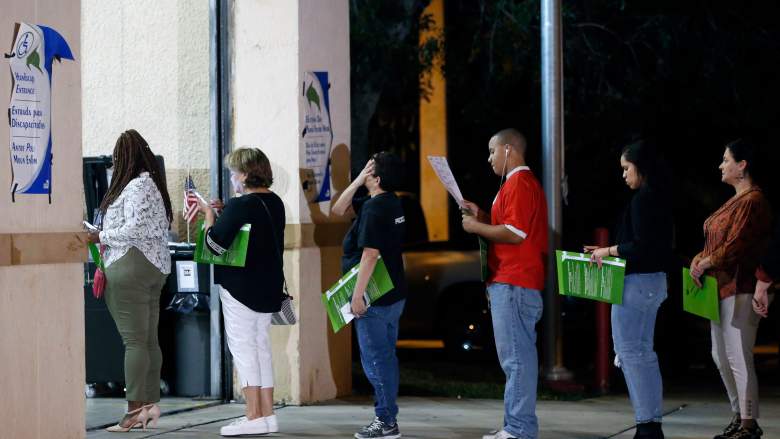
Once again, the vote in Florida is going to be close, which is leading to many asking the question, “what does it take to trigger a recount in the state?” According to state, law there has to be a 0.5 percent difference in the number of votes between two candidates.
As the unofficial results come in, the spotlight is on two races that could have a margin of just a few votes: the open Florida governor’s race between Democrat Andrew Gillum and Republican Ron DeSantis and the U.S. Senate race between Republican Rick Scott and incumbent Democrat Bill Nelson. According to the New York Times, Scott leads Nelson by 50.5 percent to 49.5 percent with 93 percent of precincts reporting. Meanwhile, DeSantis has a 50 percent to 48.8 percent lead over Gillum, also with 93 percent of the vote in, the Times reports.
The law on recounts in the state is outlined in Florida Statute 102.141(7). The state law does not have a provision for candidates to request a recount. It can only be triggered by the margin of votes. But a losing candidate can submit a written request that a recount not be held. It is up to the Secretary of State to order recounts in national and statewide races, based on the results, state law says.
Here is the full section of the statute on recounts:
If the unofficial returns reflect that a candidate for any office was defeated or eliminated by one-half of a percent or less of the votes cast for such office, that a candidate for retention to a judicial office was retained or not retained by one-half of a percent or less of the votes cast on the question of retention, or that a measure appearing on the ballot was approved or rejected by one-half of a percent or less of the votes cast on such measure, a recount shall be ordered of the votes cast with respect to such office or measure.
The Secretary of State is responsible for ordering recounts in federal, state, and multicounty races. The county canvassing board or the local board responsible for certifying the election is responsible for ordering recounts in all other races. A recount need not be ordered with respect to the returns for any office, however, if the candidate or candidates defeated or eliminated from contention for such office by one-half of a percent or less of the votes cast for such office request in writing that a recount not be made.
The state law also says that if the margin of victory is equal to or less than 0.25 percent, a hand recount would be conducted.
As FactCheck.org notes, there never actually was a full recount for Florida in 2000, when George W. Bush and Al Gore were on the ballot. The Florida Supreme Court ordered for there to be a recount, but the U.S. Supreme Court stopped it and Bush was named the winner in Bush v. Gore. The Florida Supreme Court order was just for “undervotes,” which were a group of 62,000 votes where voting machines didn’t pick up a vote for presidential candidates.